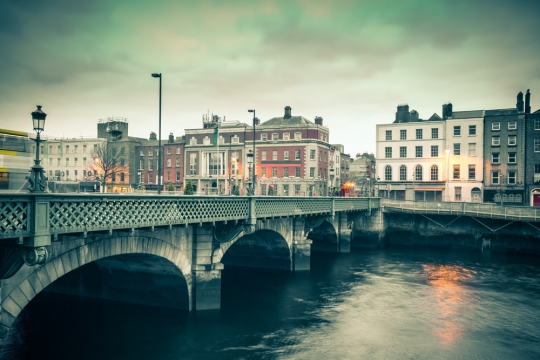So, you’ve decided to make the move. Dublin is a great city to live in, boasting a mix of old-world charm and a modern international feel. However, finding the perfect place to live can be a challenge, with rising rent prices and high demand. Knowing how best to look will help you stay ahead of the crowd.
Temporary Accommodation
It’s a good idea to rent somewhere short-term while you search for your longer-term home. This takes some pressure off, and lets you explore the city’s neighbourhoods and transport system, which will help you make your final decision. Lots of websites now specialise in short-term rentals. You’ll find temporary apartments here as well as here and here. Other sites such as Stays and AirBnB have apartments and apart-hotels to rent for vacation-length stays.
Finding A Longer-Term Place
The vast majority of apartments in Dublin are rented online. This is the go-to site, but this site and this one also have wide selections. The major newspapers, such as the Irish Times and the Irish Independent, also have rental pages. In the current competitive rental market, however, an estate agent can help you narrow down your search. Bear in mind that trying to find a bargain is difficult in Dublin, and that low prices are more likely to be found through personal or community networks than websites or agencies. For new expats, joining lots of Facebook groups and checking out community notice boards for your desired area could be ways to get a good deal.
Where To Live
The River Liffey divides Dublin into the Northside and the Southside. Historically, the Southside has been more expensive, with better amenities. The Northside is still cheaper, but thanks to major regeneration projects, it’s now a much more desirable place to live.
Dublin City Centre and South County Dublin are by far the most expensive options. This includes Grafton Street, Temple Bar, Trinity College and O’Connell Street actually in the centre, and South County suburbs such as Ballsbridge, Rathmines, Dundrum and Ranelagh, which are close to the centre. A standard one-bedroom apartment in these neighbourhoods will usually set you back between €1,400 and €1,800 per month. A two-bedroom apartment or house starts at about €1,800 here.
The Northside and West County Dublin have some more affordable options, and lots of up-and-coming areas. Here, rents start at about €1,200 for one bedroom.
Transport is something to keep in mind when choosing your neighbourhood, since Dublin has a reputation for traffic jams. The public bus system is better than many cities in the U.S., but not as reliable as some other European capitals such as London or Barcelona. The Dublin Area Rapid Transit trains or the Luas trams are more frequent. Decide on your priorities – commute time, proximity to the coast, nearby parks, restaurants and bars – and visit as many different areas as you can.
Renting In Dublin
Renters usually only give one month’s notice, which means that potential homes don’t come onto the market until they are almost ready to be leased. Be prepared to check the rental websites multiple times a day, send messages fast, and move at short notice. However, it can take a few months to find a place you love, especially as the current housing market is oversaturated, meaning landlords are receiving lots of responses to every ad. Certain factors – such as needing to live in one particular area, or seeking a dog-friendly home – can make the process longer.
It’s best to have all your paperwork ready in advance, so if you like a place, you can jump in at the top of the queue. Some renters advise bringing various documents to the property viewing, so you can make an offer to the owner or agent on the spot if you like it. You are likely to be asked for the following paperwork:
• Proof of finances (such as a bank account statement)
• Previous landlord reference, including address and telephone number
• Photocopy of valid photo ID (passport/driving license)
• Irish employment information (employer reference, national security or PPS number)
Rent is usually paid one month in advance, and you should also be prepared to pay a deposit of at least one month’s rent upfront. Make sure you get a receipt for your deposit, as it should be returned when you move out if you’ve left the property in good condition and given the agreed notice.
Extra Tips
Keep in mind that typical bills in Ireland include electricity, gas, telephone, internet, and TV licence; make sure to factor this into your budget. These are usually paid every two months – remember that heating will be a lot more expensive in the winter.
Make sure you keep an inventory of items in the apartment or house, and the condition they’re in. Taking photos is also a good idea. This helps you to get your deposit back and avoid any problems when you move out.
And finally, don’t lose faith in the search. It might take a while to find the perfect spot, but it will be worth it – you’ll be living in one of Europe’s most vibrant cities, full of character.

